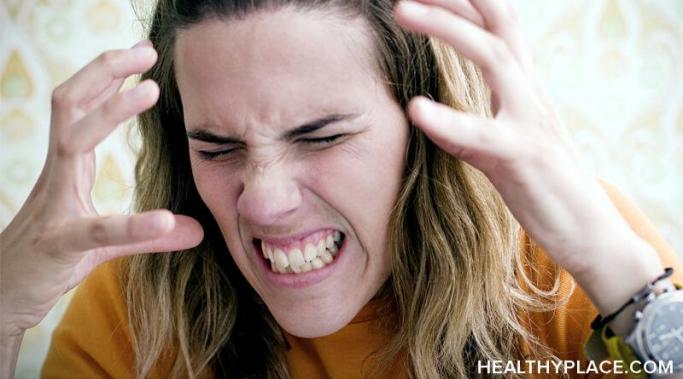Blogs
When I speak to kids about my experience with bipolar disorder, really, I have a series of failures to explain. I tell them how treatment after treatment failed. I talk about drug failures, the failure of the vagus nerve stimulator and the failure of electroconvulsive therapy. I lot of my sentences have the word, “unfortunately,” in them.
And after one of my presentations last week, one person asked what I would say to someone who was going through a similar experience. I thought that was a very important question.
So here’s what I would say to someone who’s experiencing treatment failure.
When first diagnosed with a mental illness our lives--and the lives of those closest to us--change drastically. For lack of a better cliche: like night and day; black and white. We know, instinctively, that our lives will never be the same. Sometimes, we fear they will become more difficult, or we will forget who we were prior to diagnosis. It often feels as if we are losing a part of ourselves--our "self." And that's scary. Let's explore why we may feel this way.
Sitting in class, I drift sometimes. There are days when attention is just not something that I can find in the recesses of my brain. I look and look, but it eludes me. I need to know the content being presented in lectures, though, so what do I do? I multi-task.
I mentioned a few weeks ago that I feed the hyperactivity monster list-weasels and friend-weasels when I get super hyper. I handle my inattention in a very similar way - I don't try to ignore it, I get myself down and dirty in it.
I recently finished an 8-week mindfulness meditation course. I went into it not knowing why I was there, other than the fact that my doctor had recommended it. I went in not knowing what the outcome was supposed to be. When we were asked to write goals for the course, mine were blank. I had none. I really just wanted to see if there was any benefit to all this mindfulness meditation stuff.
Turns out, I believe that there is benefit in mindfulness meditation. And here’s some of what you might find in a course.
Therapist and HealthyPlace Blogger Emily Roberts gives 5 effective tips to increase body confidence.
Driven yourself nuts lately?
What drives me the most nuts is when something happens that bugs me.
I feel sad, scared, or worse, angry.
Then, I judge myself:
That was stupid. It is not as good as I wanted. It's my fault. No it is theirs.
Last week, I wrote about how trauma affects children and what symptoms to look for in identifying a trauma reaction in a child. This week, I'm continuing the children and trauma/PTSD theme by examining treatment options.
As in my earlier post, this information comes from an expert in helping children with PTSD, my colleague Bill Krill, author of Gentling: A Practical Guide to Treating PTSD in Abused Children.
Life with Bob and His father has not been easy. I've been writing about parenting a child with mental illness (ADHD in Bob's case). I've not written much about my relationship with Bob's father. It is a difficult and challenging one. Almost, if not more challenging than my relationship with Bob.
I have two mental health warning signs that alert me to psychiatric danger. Each one serves to warn me what type of danger I'll be in. Knowing these "early warning signs" is crucial to surviving my Borderline Personality Disorder diagnosis.
Much has been written about mental illness among human beings, but almost nothing about mind maladies among those of the canine persuasion, aka man’s best friend, or, more popularly, dogs.
![MP900390526[1]](/sites/default/files/styles/blog_listing/public/uploads/2013/05/MP9003905261.jpg?itok=8oVaR4Fn)








